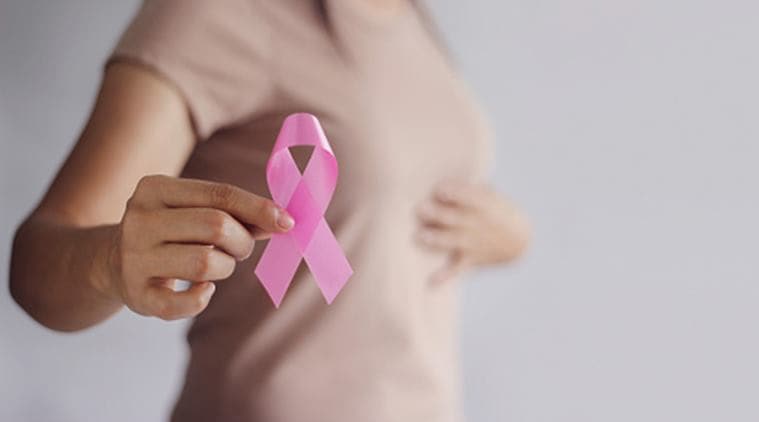Radiation therapy usually doesn't start until after the pregnancy, since it could harm the baby. If chemotherapy is required, your doctor will wait until after the first trimester, to reduce the risk of it impacting the baby.

By Dr Donald John Babu
Did you know breast and cervical cancers are the leading causes of cancer in Indian women? Cervical cancer hits women between the age of 20 and 40 years and breast cancer between 40 to 60 years. Indian women develop these cancers at an earlier age. The good news is that both these cancers are preventable and 100 per cent curable, if picked up at an earlier age.
Prevention is not possible
Breast cancer does not have specific etiological factors; those that have been described, are vague and ambiguous. Most have been hypothesised and conceptualised based on retrospection. The only offenders are the genetic causes. Even here, prevention is impossible unless you remove both breasts. The best example here would be that of Angelina Jolie who underwent a preventive double mastectomy, after she was found to be at significantly increased her risk of developing breast and ovarian cancer.
Breast cancer in expecting mothers is a delicate situation. It is important to understand that hormonal changes due to the pregnancy can make the cancer spread faster. During pregnancy, it could be harder to spot small lumps in the breasts, but breast cancer tumours are often larger and could have reached a more advanced stage by the time they’re noticed. Therefore, it is even more important to have your breasts examined throughout your pregnancy; all suspicious symptoms must be discussed with your doctor.
Pregnancy-safe diagnostics such as those mentioned below could be deployed by your doctor, if they spot something concerning:
· A mammogram could be recommended by your doctor, as it is fairly safe during pregnancy, but it may not be as helpful because of the increased density of the breasts.
· A biopsy could be recommended where a small sample of the suspicious tissue could be taken with a needle or by making a small cut. The sample tissue gets checked for cancer cells.
Surgery, in general, is considered safe during any trimester of the pregnancy. If the cancer is in its early stages, your doctor will most likely recommend a Lumpectomy (removing the suspicious lump) or Mastectomy (where the entire breast is removed); the course of treatment will be decided after the doctor has assessed you in detail.
Radiation therapy usually doesn’t start until after the pregnancy, since it could harm the baby. If chemotherapy is required, your doctor will wait until after the first trimester, to reduce the risk of it impacting the baby. Breast cancer in advanced stages usually requires both surgery and chemotherapy, so the risk to the baby increases multifold. The decision can be tough, so speak to your doctor to understand the risk and its impact.
Can you breastfeed the baby?
Now let’s address the post-delivery phase of breast cancer. Can the mother breastfeed her baby? It is ideal that the doctor be spoken to about this, to make informed decisions. Post-delivery, if the mother has to receive chemotherapy, breastfeed should not be continued as chemo drugs can travel through your milk to the baby.
It is important that the signs and symptoms of breast cancer are known. Visit your doctor immediately if you notice any symptoms; do not ignore or self-medicate.
Self-Breast Examination (SBC)
Do not hesitate or feel shy to examine your breasts in detail for lumps, bumps, nipple discharge, recent nipple inversions or tethering of skin. SBC must be done every month, while taking a bath, in front of the mirror and while lying down. Chose a day, for example, the second Sunday of every month as the opportune day for SBC.
Screening
Indian women have been found to have breast cancer at an earlier age. This means screening must begin early. The recommendation is for a physician examination every three years between the age of 20 to 40 years and sono-mammo every year, beginning at the age of 40.
Remember, screening is ‘early detection’ and not ‘prevention’. Cancer is 100 per cent curable if detected early. Detecting cancer in early stages gives every woman multiple leverages. These include saving breasts during surgery, eluding arm/forearm oedema, and in some cases fending off chemotherapy and radiation.
Chuck your fears
Chemotherapy and radiation are safe. The hair lost, grows again. Vomiting and fever are a temporary phenomenon and radiation is neither hot nor painful. Surgeons can remove breasts and reconstruct them as well; plastic surgeons do a good job at that.
Remember, cancer may have started the fight but only you can finish it.
Also Read| How surviving breast cancer made this mother fearless
(The writer is Surgical Oncologist, Hiranandani Hospital Vashi-A Fortis Network Hospital.)
Source: Read Full Article
